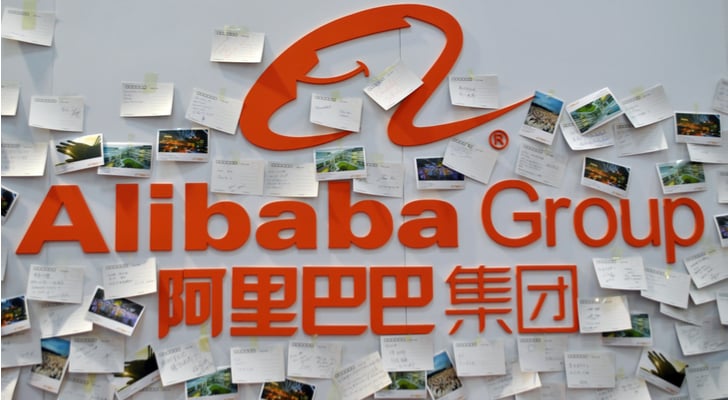Since Aug. 23, Alibaba Group Holding Ltd (NYSE:BABA) stock has gained just 2%. Alibaba stock has been mostly range-bound, save for the brief moment when BABA stock traded over $200 in late January.
This performance likely seems disappointing, particularly after the run in BABA that got the stock to those levels. Alibaba stock almost exactly doubled between the beginning of 2017 and its Aug. 23 level of $176.
Now, the run seems stalled out.
But it’s worth considering that range-bound trading has been the norm for BABA stock. The huge run through the first eight months of 2017 was the exception. Alibaba’s IPO was priced at $68, and the stock closed its first day of trading at $94. It traded below that close as recently as last January — some 27 months after the company went public.
Given its history, Alibaba very well might be headed for another stretch of choppy trading. A 27 forward earnings-per-share multiple looks cheap for a compelling growth story, backed by the still-impressive Chinese economy. But there are a myriad of risks here as well. And unless Alibaba can drive more confidence from investors, the return to its range-bound ways likely will continue.
The Risks Facing Alibaba Stock
My sentiment toward Alibaba stock largely has followed that of the market. As recently as August, I still thought the stock had long-term value. But, of late, risks seem to be rising.
Notably, competition is intensifying. JD.com Inc(ADR) (NASDAQ:JD) has been taking market share in e-commerce, as Luce Emerson detailed last year. JD’s partnership with Walmart Inc (NYSE:WMT) should help in the battle over off-line retailing as well. That company posted a strong Q4 report on Friday, though shares sank in a red market.
Tencent Holdings Ltd (OTCMKTS:TCEHY) is expanding its retail operations as well. And with Alibaba’s model largely based on not holding inventory — though its logistics capabilities are improved by its stake in Cainiao — there’s a possibility that the investments made by JD and Tencent will pay off going forward.
There’s also the question of whether Alibaba simply has too many balls in the air, as James Brumley argued last month. The sheer volume of investments led Will Healy to ask whether Alibaba looked more like General Electric Company (NYSE:GE) than Amazon.com, Inc. (NASDAQ:AMZN), the company that Alibaba is often (and usually erroneously) compared to.
With Alibaba’s accounting already facing scrutiny, the constant M&A action feels discomfiting. Alibaba’s growth looks outstanding — but at least some of it is purchased. (How much is hard to tell, given the company’s relatively opaque disclosures.)
Simply put, there’s a question of confidence here. It’s similar to what dogged BABA stock through its first two-plus years on the markets. To jump-start a rally, Alibaba needs to recapture investor trust.
The Bull Case for Alibaba Stock
No doubt, that’s doable. Alibaba still has a lot to offer investors. The cloud business, which I called a secret weapon a year ago, isn’t a secret anymore. Organic growth remains strong. The valuation looks reasonable. Ant Financial, which owns Alipay, and of which Alibaba is buying one-third, alone could be worth $100 billion. And the company’s myriad investments in and out of China should pay off, particularly the company’s efforts in the fast-growing India market.
From a fundamental standpoint, BABA still looks like one of the cheapest stocks in the market. But the question is whether investors really trust those fundamentals. For now, few bears seem willing to bet against Alibaba stock. While the short float (16%) looks high, that’s due in part to a small float (just 30% of shares outstanding) and, likely, some investors hedging against long positions in Altaba Inc (NASDAQ:AABA).
It’s not hard to see that changing, however. Alibaba still is largely a play on the Chinese economy — which brings its own risk. Alibaba shareholders don’t actually own a piece of the company. The accounting questions won’t go away given the lack of disclosure. And the cloud business probably will struggle to drive much expansion into the West, given IP/security concerns.
These are risks investors are more comfortable ignoring in a bull market. In this market, however, Alibaba stock very well might seem more dangerous. And that could be enough to keep a lid on BABA stock — and make its trading in 2018 look much like 2014-2016.
As of this writing, Vince Martin has no positions in any securities mentioned.

